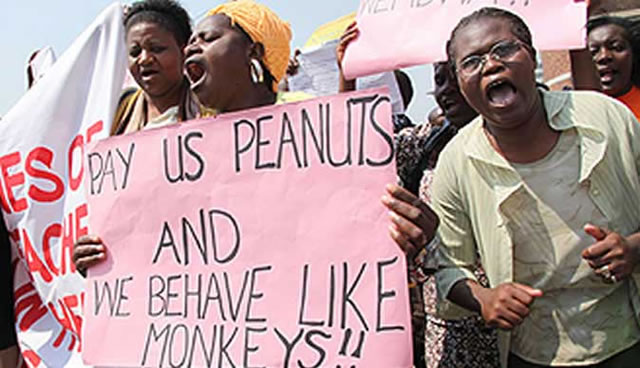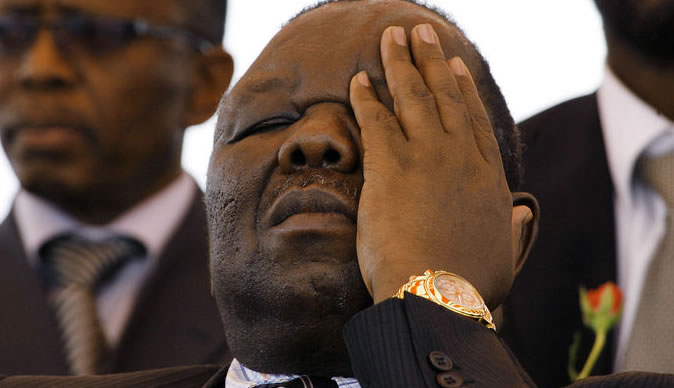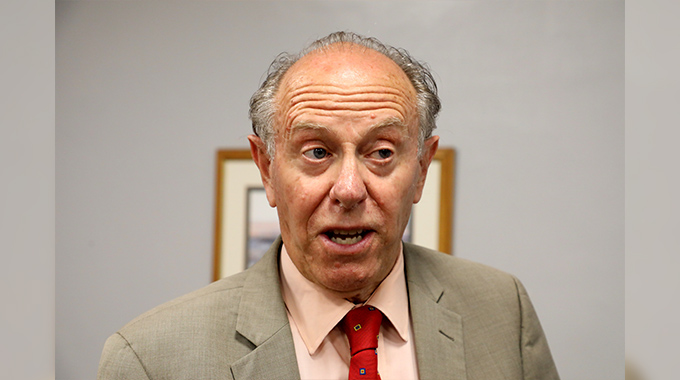A revolution in human dignity

 Stephen Mpofu Perspective
Stephen Mpofu Perspective
Teachers not up to scratch with their Science, Maths and English core subjects in education can whinge and whinge themselves hoarse, turn and twist in their beds, but their employer, government, parents and the wider public whose taxes put a steaming plate on the instructors’ dinner table, will not and must never be expected to apologise for mediocrity in Zimbabwe’s educational system.
The lives of thousands of students have been ruined, virtually, after the pupils failed those three subjects that are, in a way, a matter of life and death in anyone’s working life because incompetent teachers have led their charges down a blind alley.
Therefore, any implied opposition by anyone, and particularly by teachers’ unions, to an impelled demand by the government for the teachers in question to re-sit the three critical subjects can only be read by a concerned public as being tantamount to condoning the status quo in the schools with continuing, deplorable pass rates in the subjects now a cause for concern in this country.
The danger here is that a precedent might be set and propelled through education to economic structures where in the latter, a great deal of indifference to initiatives being taken to revive an economy contracted, by and large, as a result of the illegal Western economic embargo slapped on this country in protest at land reform.
The indifference, or apparent opposition in the teaching circles to the re-education of teachers not fully qualified to take students through their paces in Maths, English and Science is largely informed by ignorance about the importance of complete quality education as an engine for driving the economy of this country — a Zimbabwe born out of a protracted revolution.
As the initiated in this country will confess, education and re-education are a sine qua non for any successful revolution.
Young men and women who abandoned all behind them to join the armed struggle had to go through compulsory re-education — call it ideological orientation — to be led in the fight against the enemy by a clear vision of what freedom and independence meant to a subject people oppressed by a racist colonial regime.
Contextually, therefore, teachers who believe contrary to the truth, that they are qualified and complete and can therefore not go back to school, have to choose between two, equally important options: shape in or ship out.
Lately, also, government officials have almost been at pains explaining the re-alignment of empowerment laws as a major breakthrough for indigenous people, with measures being put in place to ensure Zimbabweans own 100 percent of their natural resources and investors get fair equity and return on their outlay.
The clarifications apparently come in the wake of indifference, or lack of understanding among some people regarding the critical essence of repositioning the economy into the hands of Zimbabweans but with investors still playing an important role in the growth of the country.
In fact, a convoluted view of indigenisation was being paraded publicly by some critical opinion makers as a climb down by the government in Zimbabwe’s self-realisation and actualisation through making her people masters of their own economy.
It would appear that, as with regard to teachers’ reluctance to upgrade themselves — even without spending a cent since government and donors will finance their re-education — there are Zimbabweans out there who make critical public opinion but appear ignorant of the basic essence of the independence that the country now enjoys thanks to the armed revolution that cost precious lives of dedicated young women and young men who took to arms to free the motherland.
Again, ignorance is the source of the indifference to what the government is doing to spruce up the economy, as in what government is also doing to equip teachers with sound education to beneficiate their charges with skills and experience to enable them to navigate public life to the benefit of both themselves and their country.
The independence that came more than three decades ago is, and must be seen in the same light, as a revolution in human dignity.
Yet today that independence has decidedly remained like a young child wearing a colourful political gown but pushing a distended kwashiorkor belly.
Thus, it is that malnourished independence that indigenisation seeks to end with a robust economy that will ultimately make Zimbabweans buoyant with hope for a continuing bold new future.
So what does all this discourse mean in light of this need, an imperative need, for Zimbabweans successfully to navigate trials and tribulations, foreign imposed or self-perpetuated?
Re-education as a way of illuminating the progressive path that the revolution continues to take is the answer, so this pen humbly believes.
Re-education when, for instance, critical policy refinements are made, is all too important to ignore or simply gloss over in the belief, say, that mass communication media, for instance, will know how to conscientise the public merely on the basis of pronouncements by government officials or other interested political stakeholders.
Would it not really properly and sufficiently equip and empower media practitioners for instance if briefings were held with them when changes to government policies were made, as and when that became necessary?
This pen believes such a constant walk with journalists, the country’s frontline soldiers is a safeguard against misinformation and disinformation, either of which has the dangerous potential for besmirching the country’s image, with the risk that investors much-needed to help spur economic growth might pariah the country as a no-go investment zone.
Dehumanised in the long years of colonial rule, the Zimbabwean human dignity, as symbolised by independence, must now receive total fulfillment through an economic affluence that will make this country an equal among equals in the global village.
Ideological re-orientation appears the trick in achieving Zimbabwe’s social and economic transformation.









Comments